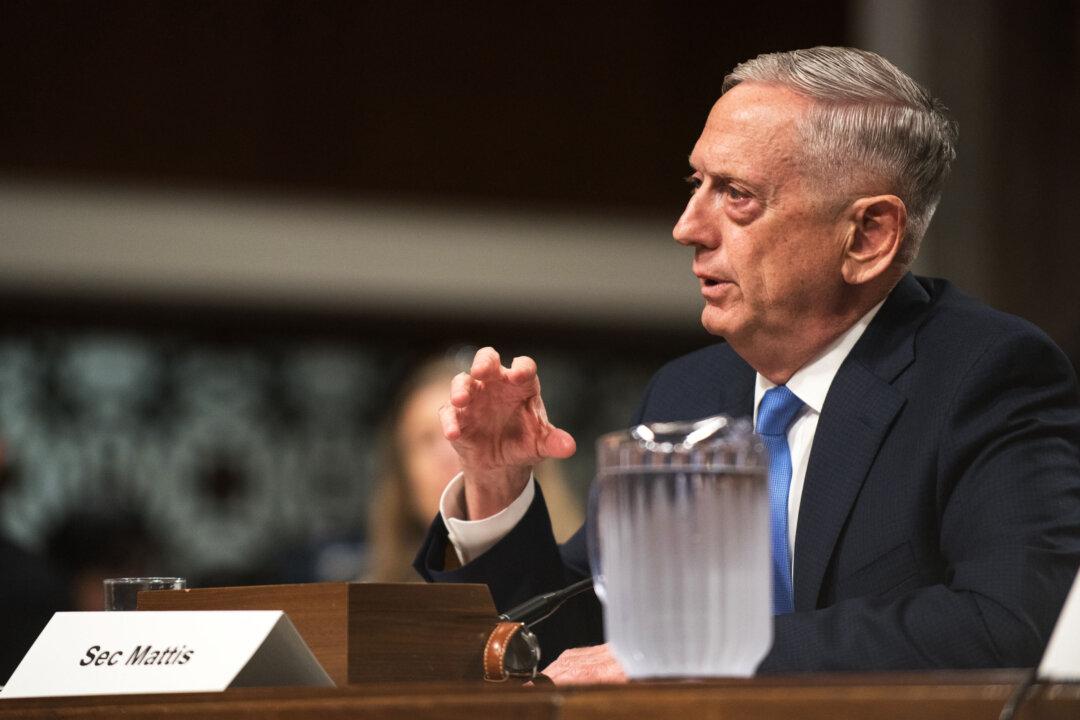There is no conflict between President Donald Trump’s tweets on the frivolity of speaking diplomatically with the North Korean regime, and the U.S. diplomatic mission to prevent North Korea from developing nuclear weapons and ballistic missiles, according to Defense Secretary James Mattis.
Mattis clarified the Trump administration’s diplomatic stance on North Korea during an Oct. 3 hearing of the Senate Armed Services Committee. He said while the Department of Defense is prepared to defend the United States and its allies if needed, it also “supports fully” efforts of Secretary of State Rex Tillerson to “find a diplomatic solution.”





